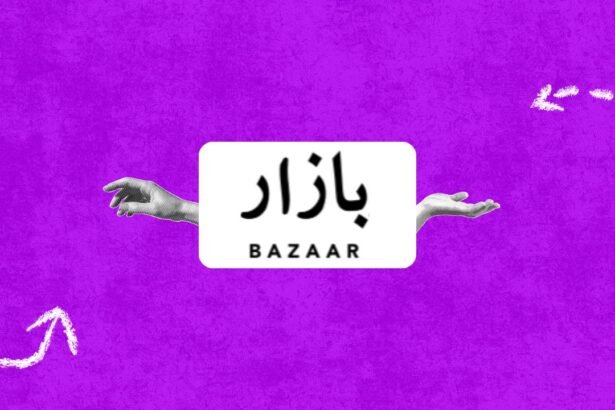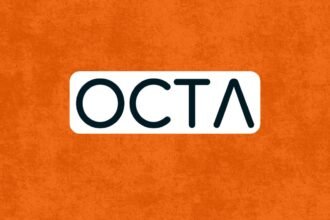July 9 marks a defining moment for Pakistan’s startup scene. Two homegrown powerhouses, Bazaar Technologies and Keenu, have joined hands. This is more than an acquisition. It signals a shift toward maturity, scale, and ambition.
Bazaar, founded in 2020 and backed by Indus Valley Capital from day one, has rapidly become Pakistan’s leading B2B e-commerce platform. Keenu, launched in 2013, is a top-tier payments fintech with over $1 billion in annual payment volume, spread across 150+ cities.
Together, they’re building Pakistan’s first full‑stack commerce‑fintech juggernaut. Let’s explore why this is monumental.
1. A Rare Homegrown Acquisition
This deal is one of Pakistan’s first major startup‑on‑startup acquisitions. Bazaar’s purchase of Keenu (operated by Wemsol) was formally approved by the Competition Commission of Pakistan in March 2025. It marks a critical milestone: local startups are now big enough to acquire and scale other tech firms, without depending on foreign buyers.
This signals that our ecosystem is graduating, from fragmented early-stage players to strategic groups capable of defining national industries.
2. Integrated Commerce + Fintech = Scale
By integrating a payments engine natively into its platform, Bazaar follows global giants like Alibaba (Alipay) and MercadoLibre (MercadoPago). This move transforms Bazaar from a marketplace into a unified commerce-fintech platform.
With Keenu’s Electronic Money Institution (EMI) license and POS infrastructure, Bazaar now offers:
- Payments and digital wallets
- EMI and deferred payments
- Merchant onboarding and credit access
- Integrated analytics and supply chain management
This unified approach streamlines operations for millions of retailers. It also opens avenues for credit and financial inclusion, especially tapping into Pakistan’s 190 million mobile connections and rising smartphone usage.
3. Complementary Teams & Tech
Keenu isn’t a passive telecom buyout. It’s a team of seasoned fintech experts. They pioneered Raast‑enabled POS and mobile wallets. Bazaar’s co-founder Saad Jangda praised Keenu’s execution ability: “world-class operators with deep fintech expertise.”
Their alignment, from vision to talent, sets a strong foundation for innovation and expansion.
4. Clear Regulatory Alignment
This merger aligns with Pakistan’s push for financial inclusion. It fits into SBP’s National Payment Strategy, targets retail digitization, and mirrors reforms like Raast P2M and SBP’s chocolate sandbox. Smooth regulatory clearance from CCP and SBP shows institutional support.
5. A Roadmap for Local Unicorns
Globally, commerce‑plus‑payments platforms have created unicorns worth tens of billions:
- Alibaba/Alipay: $180B+ annual revenue
- MercadoLibre/MercadoPago: $120B+ market cap
- Kaspi (Kazakhstan): $20B+ market cap
With conservative estimates, Bazaar-Keenu could unlock $5B–$10B valuation potential in 5–7 years, bridging Pakistan to global fintech unicorn territory.
Economic & Ecosystem Impact on Pakistan
Boosting Digital Adoption
Pakistan’s POS payments recently crossed Rs 1 trillion per annum, with Keenu alone processing ~$1 billion (~Rs 300 billion) in annual volume. This acquisition will accelerate digital payments adoption, helping more SMEs go cashless, and improved merchant services benefit tax formalization.
Catalyzing Startup Funding
Pakistan’s tech funding dropped from a record $355 million in 2022 to just $37 million in 2024, an 89% plunge. This deal, and Bazaar’s profitability trajectory (as indicated by backers like Tiger Global and Dragoneer), offers a beacon of resilience. It demonstrates that startups can build scale, achieve profitability, and make constructive acquisitions.
Strengthening Cross‑Sector Synergies
Both sectors, fintech and e-commerce, are fast-growing in Pakistan, with fintech accounting for ~$30 million (~82%) of total 2024 investment. Merged capabilities could unlock new services: credit, supply chain finance, digital credit scoring, and financial analytics. This synergy impacts a demographic of 241 million, with 65% under 30 and a booming youth-driven economy.
Export & Digital Economy Growth
Pakistan’s IT & tech exports hit ~$3.2 billion in FY24. A vibrant payments-enabled commerce platform could spur higher export volume via digitally native SMEs and global e-commerce outreach.
What This Means for Pakistan’s Next Decade
For Founders
This deal shows the pathway: build category-leading startups → integrate for scale → acquire and expand. It’s a model homegrown startups can emulate.
For Investors
Local exits and visionary growth stories re-ignite investor faith. Booked $1B+ funding in a decade, despite dips. This acquisition boosts confidence in later-stage opportunities.
For the Economy
- Job creation across tech, logistics, fintech, sales
- Tax formalization through digital tools and POS adoption
- Export growth via digitally enabled SMEs
- Financial inclusion for micro-merchants, underserved communities
What’s Next for Bazaar and Keenu?
Bazaar plans to maintain independent operations while tightly integrating infrastructure. With profitability targeted in upcoming quarters, they’re not chasing hype, they’re building sustainability.
Looking forward, expect:
- SME-focused credit products
- Supply-chain finance as core vertical
- Expanded POS and wallet reach into rural Pakistan
- Potential regional expansion
Final Thoughts
Bazaar-Keenu is more than a deal. It’s a signal, Pakistan’s startup ecosystem is maturing before our eyes. Two local champions are combining strengths to build infrastructure that supports millions.
This is “Day 1” of a new technological age. This decade could crown Pakistan’s first digital unicorn, shaped by native ingenuity, and powered by financial unity.




